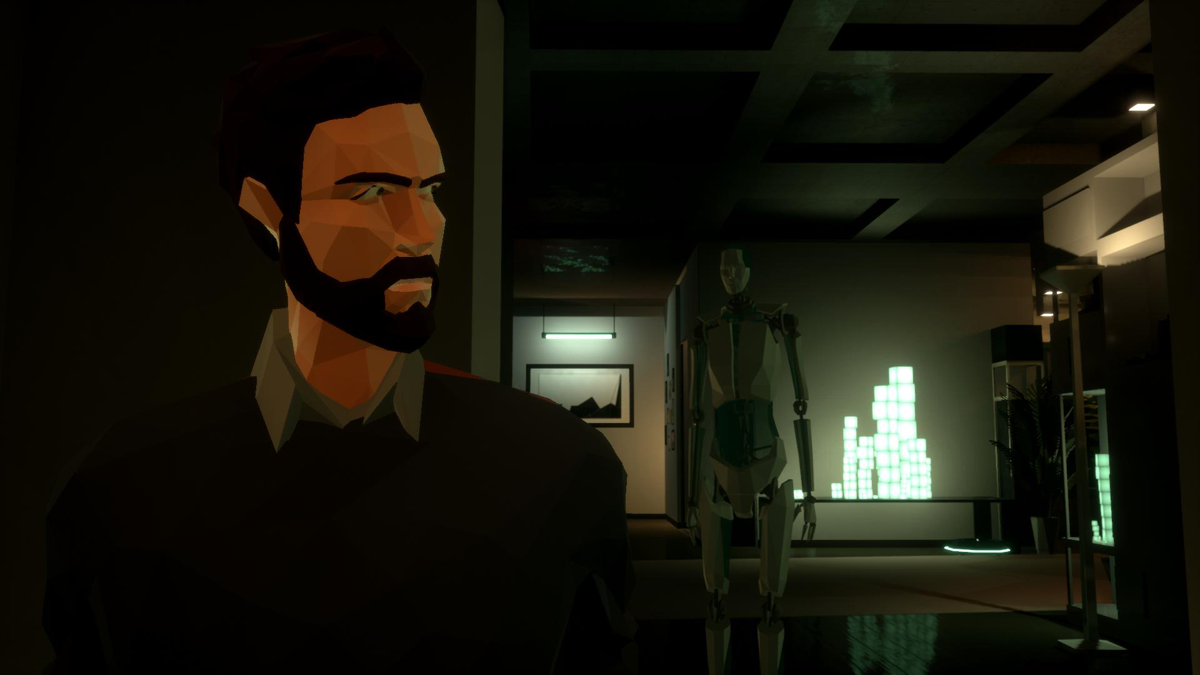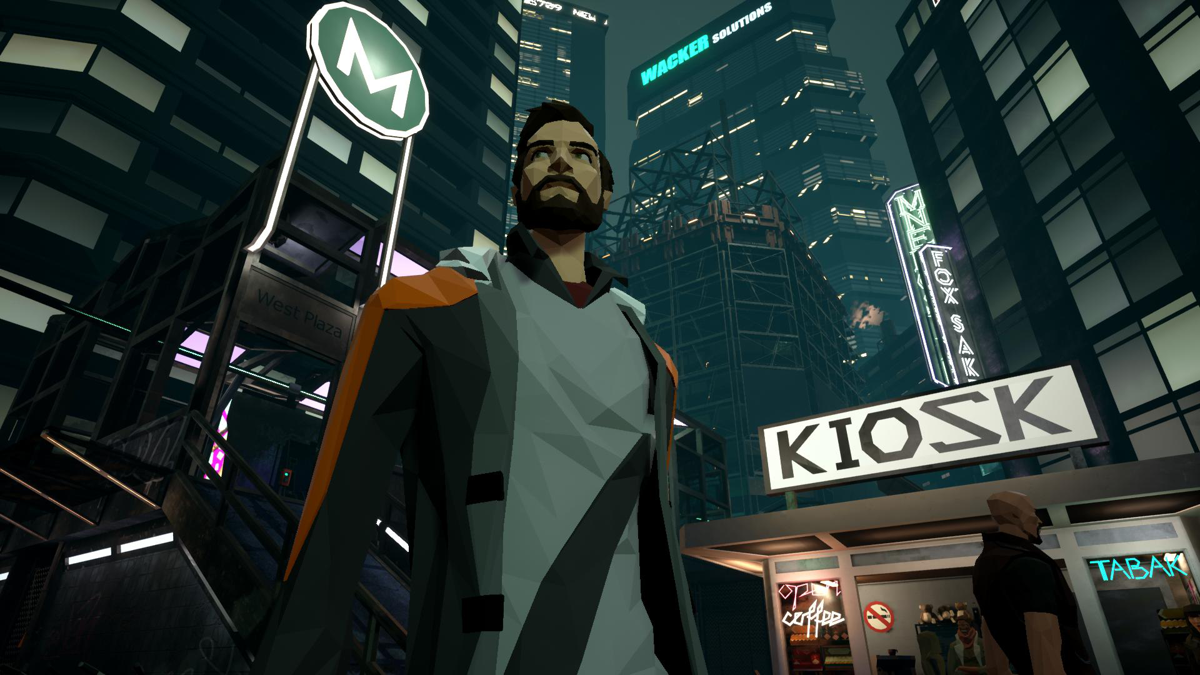State of Mind is a narrative-driven cyberpunk thriller developed by Daedalic Entertainment, who are known for their narrative-driven games. Exploring a world on the brink of change, State of Mind’s dark tone delves into themes revolving around ethics and technology.
Daedalic Entertainment may be best known for point-and-click adventure games, but State of Mind is a pleasant, if simple, divergence from that concept. Maintaining their focus on narrative, Daedalic created a world whose primary focus is allowing the player to explore as freely as possible.
Story
The game revolves around two men recovering from dangerous accidents, Richard Nolan and Adam Newman. Richard is on a search for his wife and son who have mysteriously disappeared, but due to his accident, he can’t remember where they went. In an attempt to piece together his memories, you explore various facets of advanced technologies to find them.
As Adam, you face the struggles of fatherhood. With his wife busy working on a large unknown project, Adam spends most of his time taking care of his son, John, all on his own.
Their two stories are related, so you’ll spend a fair bit of time early on swapping back and forth between the two characters. Both characters are able to explore their own homes, the nearby street, and their place of employment, as well as clubs and offices that each character uncovers during their journeys. There are similarities in the locations that both characters visit, but the vast difference in tone makes every location unique.
As you play with each character, you begin to grasp at the straws of a larger and more sinister plan. Richard, chasing after his family, finds himself embroiled in the beginnings of a war. John, on the other hand, struggling to regain lost memories, uncovers information about a conspiratorial government plot.
Unfortunately, the game doesn’t have a ton of replay value. Since there are very few choices that seem to have real weight, the game doesn’t leave you feeling like you’ve missed out just because you didn’t make a certain choice.
Gameplay
The gameplay follows the Heavy Rain formula, based largely on the exploration of your surroundings. The controls for the game boil down to movement, interaction, and examination. Walking through each area reveals a variety of objects with which you can interact, but oftentimes the interactions don’t hold much value, acting more as minor world building moments or the occasional foreshadowing.
The exploration style gameplay is punctuated with a variety of interesting mini-games. These mini-games tend to follow the same simple control scheme as the rest of the game, though the variations help to provide an occasional break from exploration.
You’ll move from exploring as Richard or John, to hacking and controlling drones. While the mini-games tend to keep the game from becoming too monotonous, they also end up being very rarely repeated. Controlling a drone is a fun break from the standard gameplay, but since it only happens two or three times, it feels like a concept that wasn’t fully utilized.
In comparison to other story driven games, State of Mind is a little lackluster. With no real choices to affect the outcome you feel more like a passenger as the story progresses. The ideas on trans-humanism and digital privacy are not new, but they still beg to be explored. In opposition to the physical exploration style of the game, the story leaves no room to explore the possibilities as it holds your hand on its way to the only ending.
Art
State of Mind does an excellent job of expressing a lot with very little. By using a low-poly art style, especially in this cyberpunk setting, the player is allowed to explore without getting bogged down in the myriad details of an unknown world. Since exploration is a common component of the gameplay, the art lends itself to keeping the player focused.
Interestingly, Richard and Adam seem to exist in entirely different worlds. Richard’s world is dark and cold, while Adam finds himself surrounded by warm light. This stark style difference seems to reflect each characters opinions on the world around them.
—
The gameplay for State of Mind is simple and effective, but the biggest draw is the story. State of Mind takes a fantastic look at ideas that have concerned humanity since science fiction’s beginnings. The concepts may not be unique, but they have the potential to be fun ideas for players to explore.
Overall, State of Mind is a good game and while I may not be playing it again anytime soon, it was a fun time.
[Note: The developer provided the copy of State of Mind used for this review.]










Published: Aug 11, 2018 11:09 am